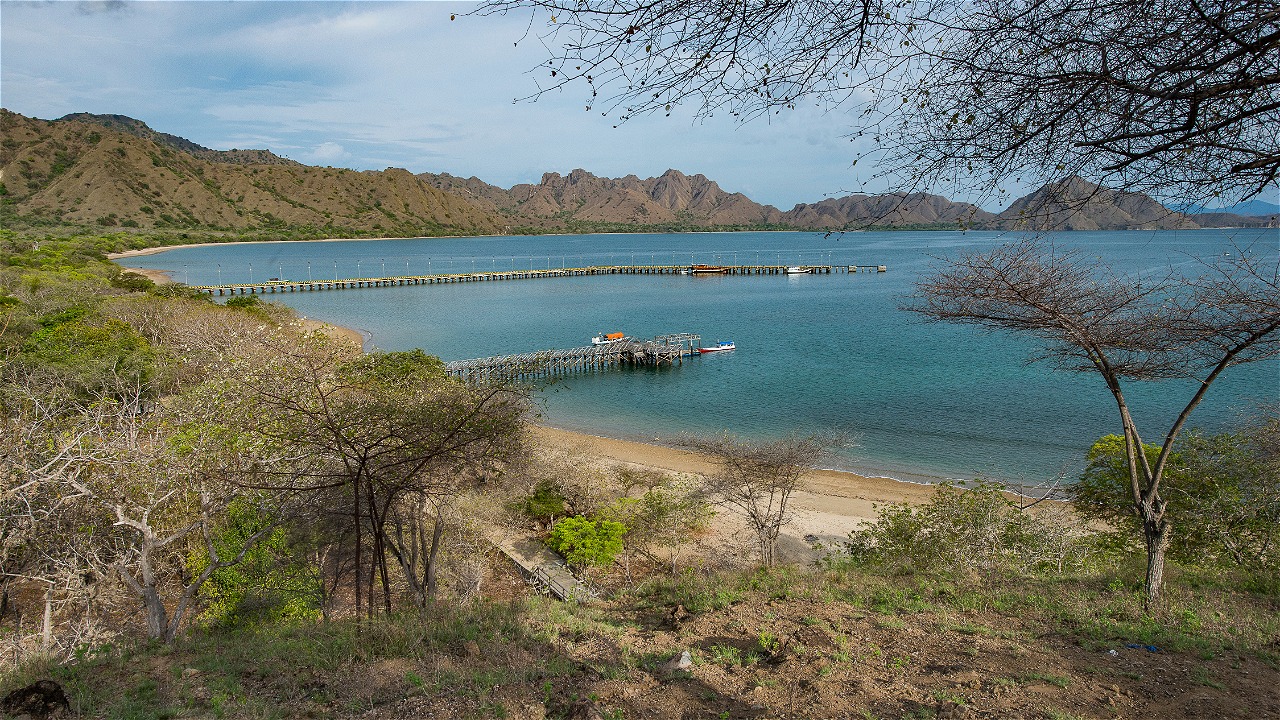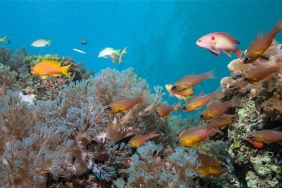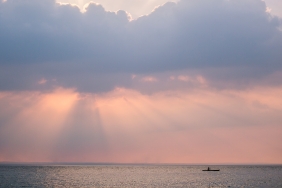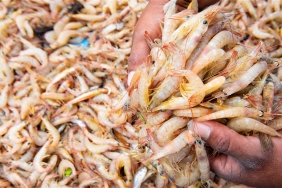WWF AND TN KOMODO EXTEND 5-YEAR COOPERATION TO STRENGTHEN MARINE PROTECTED AREAS
By: Nisa Syahidah (Communication & Campaign Assistant, WWF-Indonesia)
That day (14/09/2018), WWF-Indonesia's Marine and Fisheries Program office in Denpasar, Bali had a special guest from Komodo National Park, West Manggarai. Budhy Kurniawan, Head of Komodo National Park (BTNK), was chatting with Erdi Lazuardi and Khaifin, WWF-Indonesia's Lesser Sunda program team from WWF's Labuan Bajo office. The signing of the Cooperation Agreement (PKS) between WWF-Indonesia and BTNK will begin soon.
"Since 2013, WWF-Indonesia has been working to support the strengthening of aquatic natural resource conservation efforts in the Komodo National Park. We appreciate that WWF's presence can be well received in Komodo National Park," said Imam Musthofa, Director of Marine and Fisheries Program, WWF-Indonesia.
Previously, WWF-Indonesia has been cooperating with Komodo National Park since May 22, 2013. The agreement expired in May 2018, and was extended through the approval of the Director General of KSDAE of the Ministry of Forestry and Environment on August 7, 2018.
"Although Komodo dragons are the main domain, the buffer habitat of the aquatic ecosystem that dominates Komodo National Park needs to be maintained through four main programs, namely the protection of threatened marine animals, sustainable fisheries, sustainable tourism, and management of marine protected areas," continued Imam Musthofa, explaining the four programs that are the focus of WWF-Indonesia's work as stated in the PKS with Komodo National Park to be worked on for the next five years.
The four programs within the scope of cooperation between WWF-Indonesia and BTNK are carried out through collaborative management between stakeholders and capacity building of partners both BTNK, Mabar Regency Government, the community and the private sector, as well as encouraging policies that favor the effectiveness of regional management.
"There are many challenges in managing Komodo National Park, which is currently being highlighted by the world. However, the main management goal is conservation that supports the welfare of the community," said Budhy Kurniawan, Head of the Komodo National Park Center.
"In the development of national park management in the future, we will increase monitoring activities (monitoring) of natural resources on a regular basis. By increasing scientific research activities, we hope to compile a scientific database, which will be useful for recommendations and decision-making in management," he explained. "Hopefully, the collaboration with WWF can synergize programs for better management of Komodo National Park's waters over the next five years," Budhy continued.
Challenges and Efforts for Sustainable Tourism Management in Komodo National Park
Currently, amidst the increasing pressure of tourism activities, Komodo National Park is required to do its best to prioritize the preservation of the area that goes hand in hand with the welfare of the community. Conservation that goes hand in hand with the community, is born through good guidance from an early age.
For example, before this, through the collaboration of WWF and BTNK, 180 students in 3 villages in the Komodo National Park area have received guidance on love of nature through the introduction of Komodo National Park marine animals and the introduction of the impact of plastic waste on marine animals. A total of at least 62 naturalist guides have also attended tour guide training with the support of the Indonesian Tour Guide Association, Komodo Survival Program, and WWF-Indonesia.
Tourist activities also need to be properly monitored so as not to cause damage to the ecosystem. Budhy Kurniawan, during the signing ceremony with WWF-Indonesia, also revealed that the national park is currently developing an application that allows real-time reporting by tourists on violations encountered in the area.
In terms of waste management, through the Head of BTN Komodo Letter Number S.2216/T17/TU/REN/8/2017, Komodo National Park targets Waste-Free Komodo 2020 by banning single-use mineral water bottles in the area. Koperasi Serba Usaha (KSU) Sampah Komodo in Labuan Bajo, the first community initiative in waste management, also continues to intensify its efforts in managing at least 42 tons of waste, with 4 active administrators and members of more than 50 housewives.
"Currently, in the aspect of sustainable tourism, as many as 8 tourism service providers, both hotels and dive operators in Labuan Bajo have committed as members in WWF-Indonesia's Signing Blue responsible tourism platform," said Khaifin, Komodo MPA Site Coordinator, WWF-Indonesia, explaining the work plan for the next five years with Komodo National Park.
"With good collaboration, we can target 50% of tourism service providers in Labuan Bajo to commit to environmental conservation with Signing Blue," added Imam Musthofa.
"Hopefully, through this cooperation agreement, the effectiveness of water area management within Komodo National Park can be optimized by ensuring that aquatic natural resources are well preserved and able to provide sustainable benefits to the community," concluded Imam Musthofa, with all of us present that day.





